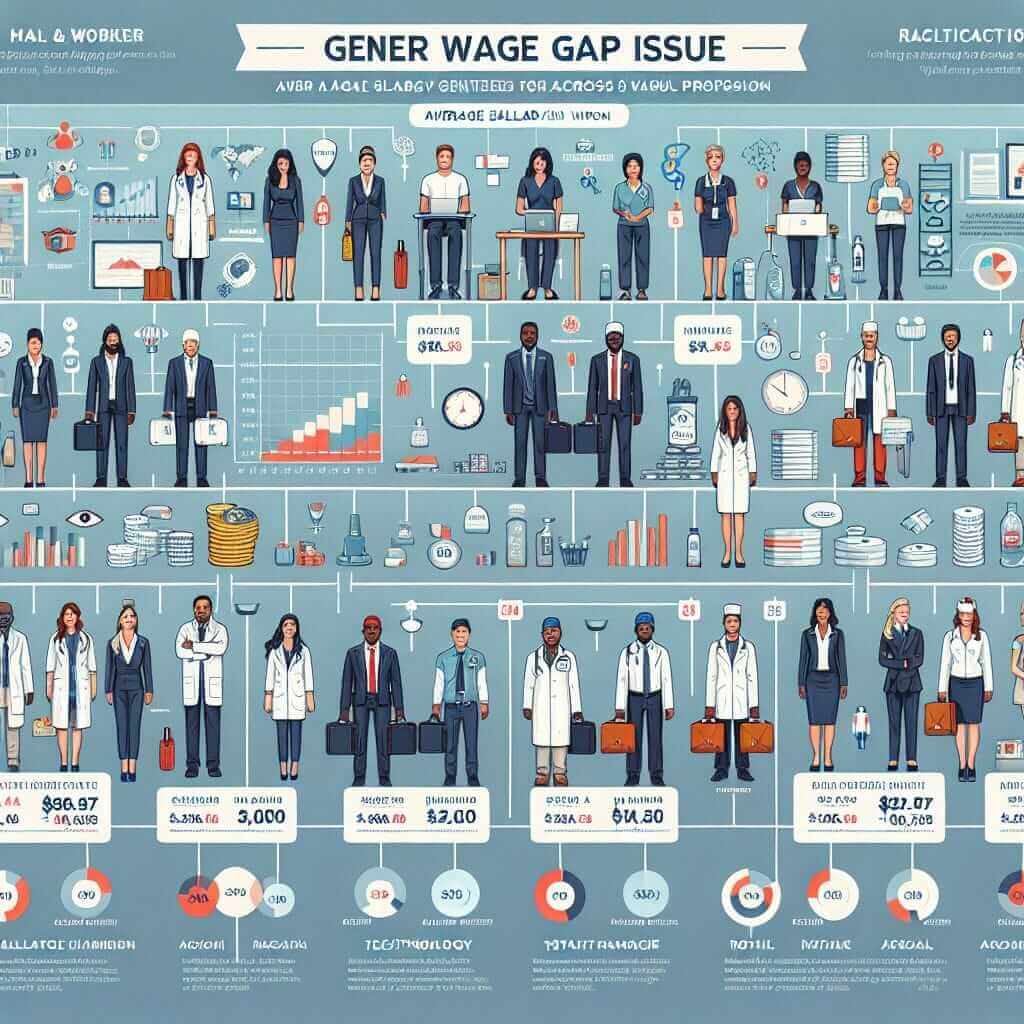As an IELTS instructor with over two decades of experience, I often encounter students grappling with complex topics, especially in the IELTS Speaking test. One such topic is gender inequality in the workplace. This issue, sadly still prevalent globally, requires a nuanced understanding to discuss effectively.
This article serves as a guide to help you navigate the topic of gender inequality in the workplace, particularly within the context of the IELTS Speaking exam. We will explore common questions, delve into vocabulary building, and equip you with the language and confidence to express your views clearly and thoughtfully.
What Constitutes Gender Inequality in the Workplace?
Before formulating your responses, it’s crucial to understand what constitutes gender inequality in the workplace. This encompasses a range of issues, including:
### Wage Gap:
The disheartening reality that men and women often receive unequal pay for equal work. This disparity is a blatant example of gender discrimination and has far-reaching consequences for women’s economic security.
### Limited Opportunities for Advancement:
Women frequently encounter a “glass ceiling” that hinders their career progression. This invisible barrier prevents them from reaching senior leadership positions, regardless of their skills and qualifications.
### Unconscious Bias:
Deeply ingrained societal stereotypes can unconsciously influence decision-making in the workplace, often disadvantaging women. This bias can manifest in hiring, promotions, and performance evaluations.
### Work-Life Balance Challenges:
Traditional gender roles often place a disproportionate burden of domestic responsibilities on women, making it challenging for them to balance work and family life. This can impact their career progression and overall well-being.

Navigating IELTS Speaking Questions on Gender Inequality
Now, let’s consider how these aspects might emerge in your IELTS Speaking test:
Part 1: Expect questions focusing on personal experiences and opinions. For instance:
- “What are some common jobs for men and women in your country?”
- “Do you think men and women have equal opportunities in the workplace?”
Part 2: You might be asked to describe a situation illustrating gender inequality or discuss potential solutions:
- “Describe a time when you witnessed or experienced gender inequality in a professional setting.”
- “Discuss the steps that can be taken to promote gender equality in the workplace.”
Part 3: Expect more abstract and analytical questions:
- “What are the societal implications of gender inequality in the workplace?”
- “How can governments and organizations work together to address this issue?”
Essential Vocabulary
To articulate your thoughts effectively, familiarize yourself with relevant vocabulary:
- Gender equality: Equal rights, responsibilities, and opportunities for all genders.
- Gender discrimination: Unfair treatment based on gender.
- Stereotypes: Oversimplified beliefs about gender roles.
- Empowerment: Giving someone the power or authority to act.
- Equal pay for equal work: Ensuring men and women receive the same salary for the same job.
- Maternity/paternity leave: Time off work for parents to care for a new child.
- Flexible work arrangements: Options to adjust work hours or location, promoting work-life balance.
- Mentorship programs: Initiatives that pair experienced professionals with mentees for guidance and support.
Tips for Success
- Develop your own opinions: Don’t be afraid to express your views. The examiner is interested in your ability to articulate and support your ideas.
- Use specific examples: Whether personal or hypothetical, examples make your points more relatable and impactful.
- Maintain a formal tone: While sharing personal experiences is encouraged, ensure your language remains appropriate for an academic setting.
- Practice makes perfect: Regularly practicing your speaking skills will boost your confidence and fluency on exam day.
Conclusion
Discussing complex issues like gender inequality requires sensitivity, knowledge, and a strong command of vocabulary. By understanding the nuances of the topic, equipping yourself with the right language, and practicing your speaking skills, you’ll be well-prepared to confidently tackle any questions that come your way. Remember, your voice matters, and by speaking out against injustice, you contribute to creating a more equitable world.